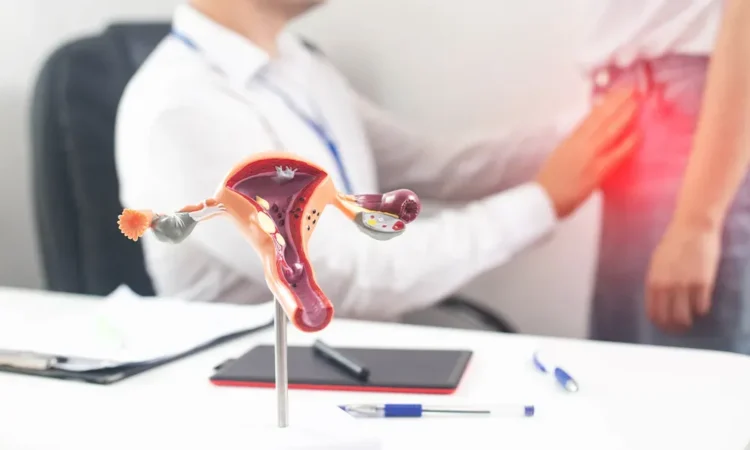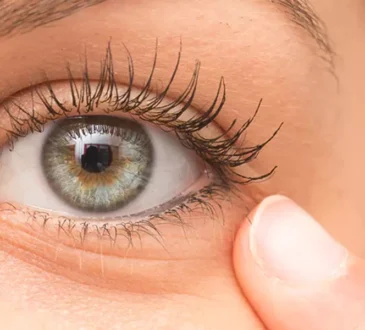
Uterine fibroids are among the most common health concerns faced by women during their reproductive years. While they are typically non-cancerous, they can still have a significant impact on quality of life. From heavy bleeding and pelvic pain to fertility challenges, fibroids present unique issues that need timely diagnosis and management. Thankfully, with advanced healthcare facilities and access to experienced specialists, women seeking uterine fibroids treatment in London have many options to explore for relief and recovery.
What Are Uterine Fibroids?
Uterine fibroids are benign (non-cancerous) growths that develop in or around the uterus. They vary in size, from tiny nodules invisible to the naked eye to larger masses that can distort the uterus.
While the exact cause remains unclear, factors that may increase the likelihood of developing fibroids include:
- Hormonal imbalances involving estrogen and progesterone.
- Family history of fibroids.
- Early onset of menstruation.
- Lifestyle and dietary habits.
Understanding these risk factors is crucial for identifying when to consult a gynaecologist specialist in London for timely intervention.
Symptoms That Should Not Be Ignored
Not all fibroids cause noticeable symptoms, but when they do, they can significantly affect daily life. Common signs include:
- Heavy or prolonged menstrual bleeding.
- Pelvic pressure or pain.
- Frequent urination or difficulty emptying the bladder.
- Constipation or bloating.
- Backache or leg pain.
- Challenges with conception or maintaining pregnancy.
Women experiencing any of these symptoms should consider consulting a specialist to explore the best treatment for fibroids based on their specific condition.
Diagnosis of Fibroids
Accurate diagnosis is key to effective treatment. A gynaecologist specialist in London may recommend several diagnostic methods, including:
- Pelvic examination: To feel for abnormalities in the uterus.
- Ultrasound scans: To visualise the size, shape, and number of fibroids.
- MRI scans: For detailed images in complex cases.
- Hysteroscopy or laparoscopy: Minimally invasive procedures to view the uterus directly.
These techniques allow specialists to tailor treatments to the patient’s needs.
Uterine Fibroids Treatment in London: Available Options
Women exploring uterine fibroids treatment in London can choose from a variety of medical and surgical options depending on the severity of symptoms, fibroid size, and fertility considerations.
1. Medication-Based Treatments
- Hormonal therapy: Helps regulate menstrual cycles and reduce heavy bleeding.
- Non-hormonal medication: Anti-inflammatory drugs and iron supplements to manage pain and anaemia.
- GnRH agonists: Temporarily shrink fibroids by lowering estrogen levels.
2. Minimally Invasive Procedures
- Uterine artery embolisation (UAE): Blocks blood supply to fibroids, causing them to shrink.
- MRI-guided focused ultrasound: Uses high-frequency waves to destroy fibroid tissue.
3. Surgical Options
- Myomectomy: Removal of fibroids while preserving the uterus, suitable for women planning pregnancy.
- Hysterectomy: Complete removal of the uterus considered when other treatments fail, or symptoms are severe.
Each method offers its own benefits, and a gynaecologist specialist in London can guide patients to the best treatment for fibroids based on individual health goals.
Choosing the Best Treatment for Fibroids
The right treatment depends on several factors:
- Severity of symptoms: Heavy bleeding may need more aggressive treatment.
- Fibroid size and location: Larger or many fibroids may need surgical intervention.
- Age and fertility plans: Younger women may prefer uterus-preserving options like myomectomy.
- Overall health: Certain conditions may limit available treatment choices.
By carefully evaluating these factors, specialists can recommend personalised solutions.
Role of a Gynaecologist Specialist in London
Managing fibroids effectively requires expert guidance. A gynaecologist specialist in London offers:
- Accurate diagnosis using advanced imaging.
- Access to the latest minimally invasive treatments.
- Guidance tailored to fertility plans and lifestyle.
- Ongoing monitoring to prevent recurrence.
Partnering with a trusted specialist ensures women feel supported throughout their treatment journey.
Lifestyle and Self-Care Approaches
Alongside medical treatments, lifestyle choices can also play a supportive role in managing fibroids:
- Balanced diet: Focus on fruits, vegetables, and whole grains while reducing red meat intake.
- Regular exercise: Helps regulate hormones and maintain a healthy weight.
- Stress management: Practices such as yoga and meditation support overall well-being.
- Monitoring symptoms: Keeping track of menstrual cycles and changes helps doctors provide better care.
These adjustments may not eliminate fibroids but can improve quality of life and complement formal treatments.
Emotional and Psychological Impact
Fibroids don’t just affect the body; they can also impact emotional health. Dealing with heavy bleeding, pain, or fertility concerns often leads to stress, anxiety, and lowered confidence. Seeking counselling or joining support groups can provide comfort and reassurance during treatment.
Advances in Fibroid Treatments
The future of fibroid care is promising. Advances in medical technology have enabled women to access safer, faster, and less invasive procedures than ever before. Treatments such as robotic-assisted surgery, targeted drug therapies, and enhanced imaging techniques are revolutionizing the way fibroids are managed in London and beyond.
Uterine fibroids are common, but living with discomfort doesn’t have to be the norm. Women now have access to advanced options for uterine fibroids treatment in London, guided by experienced professionals. Whether through medications, minimally invasive procedures, or surgery, there is always a pathway toward the best treatment for fibroids.
With the support of a qualified gynaecologist specialist in London, women can take control of their health, regain confidence, and move forward with a better quality of life. By combining medical expertise, lifestyle care, and emotional support, managing fibroids becomes not just about treatment but about achieving holistic well-being.




